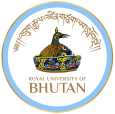Conference Theme
The 3rd Australia-Bhutan Research Conference aims to bridge knowledge and innovation by harnessing the collective expertise of Bhutanese researchers and HDR students in Australia, Bhutan and beyond. It seeks to foster meaningful research collaborations and knowledge exchange that contribute to Bhutan’s developmental priorities and global academic dialogue.
Objectives
Specifically, the ABRC 2025 aims to achieve the following objectives:
Promote Knowledge Exchange: Provide a platform to discuss research that aligns with Bhutan’s developmental priorities such as GNH, mindfulness, sustainability, innovation, good governance, and technology.
Build Research Networks: Strengthen networks among Bhutanese HDR students in Australian universities with higher education academics and students in Bhutan and globally for a sustained collaboration beyond the Conference.
Enhance Capacity Building: Share best practices, research methodologies and research findings to strengthen Bhutan’s research ecosystem.
Foster Academia-Policymaker Engagement: Strengthen collaboration to foster research-informed policy-making, initiatives and innovations to address emerging challenges and achieve long term national goals.
Strengthen Bilateral Relations: Strengthen partnerships between Australia and Bhutan through academic and cultural exchange.
Sub-Themes
The Conference will focus on the following thematic areas relevant to Bhutan’s developmental goals, including but not limited to:
Thematic Area I: Cybersecurity and Responsible Digital Engagement: Explores strategies to strengthen cybersecurity awareness and promote ethical, mindful engagement with digital technologies. It highlights initiatives to build digital resilience through education, safeguard critical infrastructures such as Bhutan’s hydropower sector, and encourage responsible technology use. Emphasising the human dimension of digital transformation, the theme calls for inclusive, secure, and ethical practices that balance innovation with social responsibility, ensuring technology enhances trust, safety, and sustainable development.
Thematic Area II: Climate Change and Environmental Dynamics in Bhutan and Himalayas: Explores the complex interplay between climate change, environmental systems, and sustainable resource management in Bhutan and the Himalayas. It highlights research on hydrogeology, dendroclimatology, climate forecasting, clean energy access, and aquatic biodiversity—emphasising evidence-based approaches to adaptation, restoration, and resilience in fragile mountain ecosystems.
Thematic Area III: Integration of STEM for Societal Impact: Examines how interdisciplinary STEM approaches address real-world challenges, from biosecurity and genomics to biodiversity, sustainable construction, and microfluidics. It highlights scientific and technological innovations that enhance resilience, health, and environmental sustainability, demonstrating how integrated research can generate practical solutions that improve societal well-being and quality of life in Bhutan and beyond.
Thematic Area IV: Happiness and Wellbeing in Cross-Cultural Context:Examines mental health, resilience, and well-being across cultural contexts, with a focus on Bhutanese youth and educators. It explores the impacts of bullying, substance use, and sexual risk behaviours, while highlighting cross-cultural knowledge exchange, compassion in education, and strategies to promote psychological well-being, resilience, and positive social outcomes in diverse educational and community settings.
Thematic Area V: Biodiversity, Urbanisation, and Sustainable Resource Management: Examines strategies for conserving biodiversity, managing urbanisation impacts, and promoting sustainable resource use in Bhutan and the Himalayas. It highlights innovative approaches such as eDNA monitoring, mycelium-based materials, and riparian ecosystem studies, alongside sustainable waste and energy solutions, including biogas and wastewater resource recovery, emphasising evidence-based practices for resilient, sustainable, and ecologically balanced communities.
Thematic Area VI: Governance, Public Policy, and Leadership: explores how governance, policy, and leadership shape sustainable development and societal well-being in Bhutan. It examines corporate social responsibility, education financing, post-pandemic workplace culture, and evaluation frameworks, highlighting strategies to strengthen institutional effectiveness, promote inclusive decision-making, and foster resilience. The session emphasises evidence-based approaches for informed policy-making and transformative leadership.
Innovation in Education: Explores innovative approaches to teaching, learning, and policy in Bhutanese education. It highlights the use of technology and generative AI, strategies for equity and inclusion through Universal Design for Learning, and the development of comprehensive education policies. The session emphasises evidence-based practices to enhance educational quality, accessibility, and student engagement across schools and higher education.
Human-Centered Digital Innovation and Health Technologies: Explores the intersection of technology, health, and human well-being through innovative, people-focused solutions. It highlights advances in biotherapeutics, digital diagnostics, and assistive medical devices, alongside epidemiological studies addressing public health challenges in Bhutan. The session emphasises how digital and scientific innovations can enhance healthcare accessibility, efficiency, and equity in resource-limited contexts.
